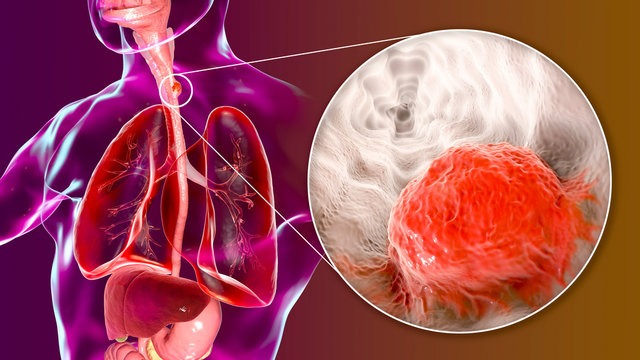ESOPHAGEAL CACNER – The sixth most common cause of deaths worldwide.
Esophagus is a long hollow tube that helps in moving the food. It runs from the throat to the stomach. A cancer that develops in the cells of the oesophagus is known as esophageal cancer.
The cancer develops usually in the cells that line the inside of the esophagus.
Risk factors for esophageal cancer
Tobacco use, excessive alcohol consumption; smoking, GERD, Barrett’s esophagus, bad dietary habits and obesity.
Learn more about GERD…
What are the symptoms of Esophageal Cancer?
The following are some of the signs and symptoms of esophageal cancer:
- Swallowing difficulty (Dysphagia)
- Sore throat
- Hoarseness or coughing
- Worsening heartburn or indigestion
- Pressure or burning sensation in the chest
- Chest pain
- Unexplained weight loss
What are the causes of Esophageal cancer?
There is no exact cause of esophageal cancer. A group of factors may play a role in the development of cancer. The cells in the lining of the oesophagus undergo mutations (changes in the gene sequence) in their DNA. When this happens, the cells grow and divide out of control and develop into esophageal cancer. Adenocarcinoma (cancer develops in the mucus-secreting cells of the esophagus) and squamous cell carcinoma are the common types of esophageal cancer. Choricarcinoma, melanoma, lymphoma, sarcoma and small cell carcinoma are some of the rare forms of esophageal cancer.
What are the complications?
In the advanced stages, esophageal cancer can cause pain (severe pain in the esophagus with swallowing difficulty). It can also lead to bleeding in the esophagus – which is mild to moderate in the beginning. The bleeding can become sudden and severe as well. Many people experience difficulty in swallowing food and liquid through the esophagus.
How is esophageal cancer diagnosed?
Diagnosis of esophageal cancer: It is based on the medical examination, reviewing symptoms, and medical history of the patient. In addition, a surgical gastroenterologist may also order certain blood and imaging tests including endoscopy, barium swallow X-ray; CT and PET scans, thoracoscopy and biopsy. These tests help in determining the extent of spread (metastasis) of esophageal cancer outside the esophagus.
Bottom line
Esophageal cancer is the sixth leading cancer in the world. In the early stages, it doesn’t cause any signs and symptoms. Advanced stages esophageal cancer can spread to other parts of the body (metastasis). Early detection of esophageal cancer helps in effective treatment.

